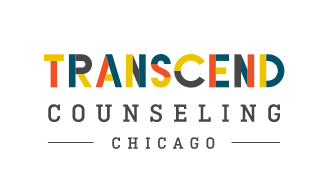A Guide to Starting Mental Health Therapy
Whether you are struggling with your past, present or future, lots of people find themselves feeling stuck or hopeless. For some, therapy is a place to process through new or old traumas, explore their identity, or work through difficult relationships. For others therapy might be a place to get support from someone with extra tools to get them through a transition or temporary hard situation. All reasons are good reasons to give therapy a try.
If you're considering therapy but feeling unsure or hesitant, you're not alone. Here’s a comprehensive guide to help you navigate the process of starting mental health therapy:
1. Acknowledge Your Feelings
Recognize the Need: It's okay to feel anxious or unsure about seeking therapy. Acknowledge your feelings and remind yourself that seeking help is a sign of strength, not weakness.
2. Finding the Right Therapist
Research Therapists: Look for licensed therapists who specialize in areas that align with your needs (e.g., depression, anxiety, trauma).
Types of therapists include:
Licensed professional counselor (LPC) or licensed clinical professional counselors (LCPC)
Licensed marriage and family therapists (LMFT)
Licensed social workers (LSW) or licensed clinical social workers (LCSW)
Psychologist (PsyD or PhD) - they can provide therapy and psychological testing
Consider Compatibility: Chemistry with your therapist is crucial. At Transcend Counseling Chicago we offer a free 15 minute consultation, so you can make sure you feel comfortable and understood by the therapist you might work with. It is OK if you decide it isn’t a good fit, all therapists want you to find the right match.
3. Taking the First Step
Make Contact: Reach out to the therapist you’re interested in. For therapists in our practice, please fill out the Intake form on our website. Due to availability and scheduling issues, we encourage you to make a top 5 list of desired therapist and reach out to them all.
Consultation: During this 15 minute video or phone call your therapist will tell you about themselves and ask you questions like what brought you to therapy? What are some of your goals? (it’s OK to not have those answers right now). We also highly encourage you to ask your potential therapist questions such as :
How much experience do you have working with issues like mine?
How would you describe your experience treating clients who share my [insert your LGBTQ identity here i.e. “trans/
non-binary”] identity?How would you describe your experience treating clients who share my [insert your racial/cultural identity here i.e.
“Indigenous”] identity? What is your experience incorporating a racial equity/anti-racist lens into your treatment?What type of insurance do you take? What is your late cancellation policy?
How long and how often will our sessions be?
What might a typical session look like? What will out first session together look like?
Do you have a typical approach to therapy?
If I need a diagnosis, medication or doctors notes will you be able to help?
4. Preparing for Your First Session
Set Realistic Expectations: Therapy is a process, and progress may take time. Be patient with yourself and the process.
5. During Your First Session
Open Communication: Be open and honest with your therapist. They are there to support you without judgment and they care about you.
Establishing Trust: Building a trusting relationship with your therapist may take time. Use this session to gauge if you feel comfortable continuing with them. If you are having reservations bring it up with your therapist, they care about you and may just need to learn how to best support you.
6. Committing to the Process
Consistency is Key: Attend sessions regularly as recommended by your therapist. Consistency helps in building momentum and achieving therapeutic goals.
7. Managing Expectations
Patience with Progress: Healing and processing is a gradual process. Sometimes it can feel like nothing is working, change and be slow and your therapist is here to support you.
8. Self-Care
Incorporate self-care practices alongside therapy sessions to support your overall well-being.
Remember, it’s okay to feel uncertain initially. With the right therapist and commitment to the process, you can embark on a journey of self-discovery, healing, and personal growth. You deserve to live a life where your mental health is nurtured and supported.
Take that first step – we think you’re worth it.
